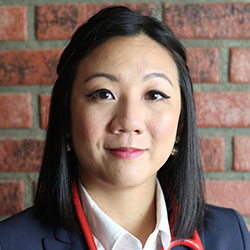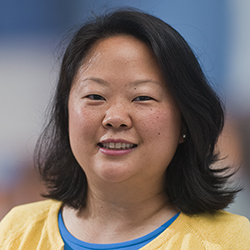Insulin Resistance Clinic
What is Seattle Children’s Insulin Resistance Clinic?
Our Insulin Resistance team works closely with children who have insulin resistance. This means the hormone insulin, which is made by the body, cannot keep a child’s blood sugar (glucose) levels normal after they eat or drink. With a healthy diet and exercise, it is possible to reverse insulin resistance and prevent type 2 diabetes.
-
Why is insulin resistance a problem?
Insulin is made in the pancreas gland. Insulin’s job is to move sugar from the blood and turn it into energy. When insulin does not work right, the body tries to help by making more. This extra insulin keeps blood sugars normal for a while. But over time, the pancreas cannot make enough insulin. Blood sugar levels get too high, which can develop into type 2 diabetes.
-
How do I know if my child has insulin resistance?
The signs and symptoms can vary, but some are easy to see. If your child’s body makes too much insulin, they often develop patches of dry, darker skin on their neck, under the arms or in the groin area. This is called acanthosis nigricans. Some children have:
- Brain fogginess
- Depression
- Tiredness
- High blood sugar (found by a blood test)
- Higher blood pressure
- Increased hunger
How will the Insulin Resistance Clinic help my child?
Our Insulin Resistance clinic brings together experts in different specialties to care for children and teens at risk of developing diabetes.
-
The experts you need in 1 place
Our pediatric specialists work together — and with you — to care for your child. We coordinate appointments so that your child can see multiple providers in a single visit. The team includes:
- Doctor (endocrinologist) or nurse practitioner to find and check on risk factors related to obesity and insulin resistance. These include changes in liver enzymes, blood pressure and levels of sugars and fats (lipids) in the blood.
- Dietitian to help make healthy food choices and improve eating habits.
- Social worker to help your child and family make behavior changes. We link you with community resources if needed.
- Athletic trainer to create an exercise plan that is right for your child.
Most patients see the doctor or nurse practitioner every 3 months. They visit the dietitian and athletic trainer every 6 weeks. Families meet with the social worker at their first visit and then as needed.
-
Support for your whole family
- At Seattle Children’s, child life specialists and social workers help your child and family ease tension, express concerns or fears and feel more in control. We connect you to endocrinology and diabetes resources.
- Each child is different. We work with you to give your child complete care. Members of our team have special training in their field and in the unique needs of children and teens.
- We work with many children and families from around the Northwest and beyond. Seattle Children's can help with financial counseling, schooling, housing, transportation, interpreter services and spiritual care. Read about our services for patients and families.
Scheduling an Appointment with Insulin Resistance
- If you would like a referral to the Insulin Resistance Clinic, talk to your primary care provider.
- If you already have a referral, please contact us at 206-987-2640 to schedule an appointment.
- If you have an appointment, see what to expect and how to prepare.
- Learn about endocrinology and diabetes resources such as useful links, videos and recommended reading for you and your family.
- Providers, see how to refer a patient.
Telemedicine at Seattle Children’s
You may be offered a telehealth (virtual) appointment. Learn more.
Who’s on the team?
Providers in our clinic include:
Team
Contact Us
For more information, contact the Insulin Resistance Clinic at 206-987-2640. If you would like an appointment, ask your child’s primary care provider to refer you.We provide care at our hospital campus in Seattle
Providers, see how to refer a patient.
Paying for Care
Learn about paying for care at Seattle Children’s, including insurance coverage, billing and financial assistance.
Access Additional Resources
Get resources for patients and families, including information on food, housing, transportation, financial assistance, mental health and more.



